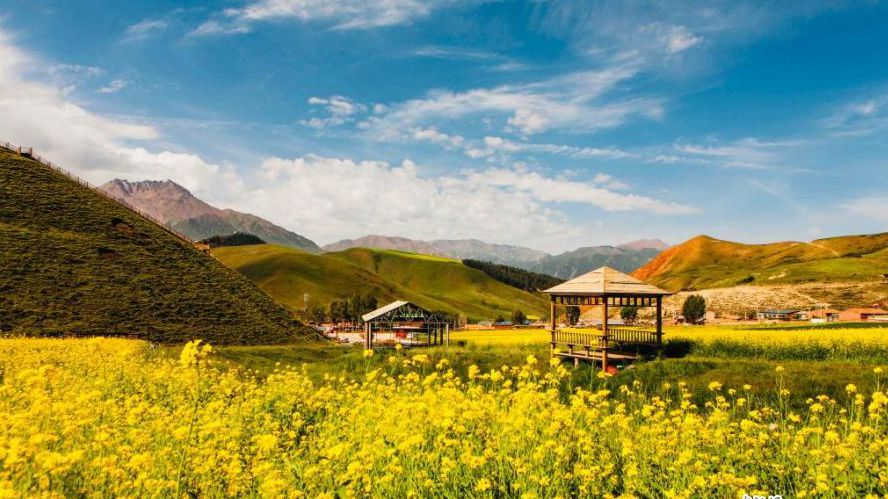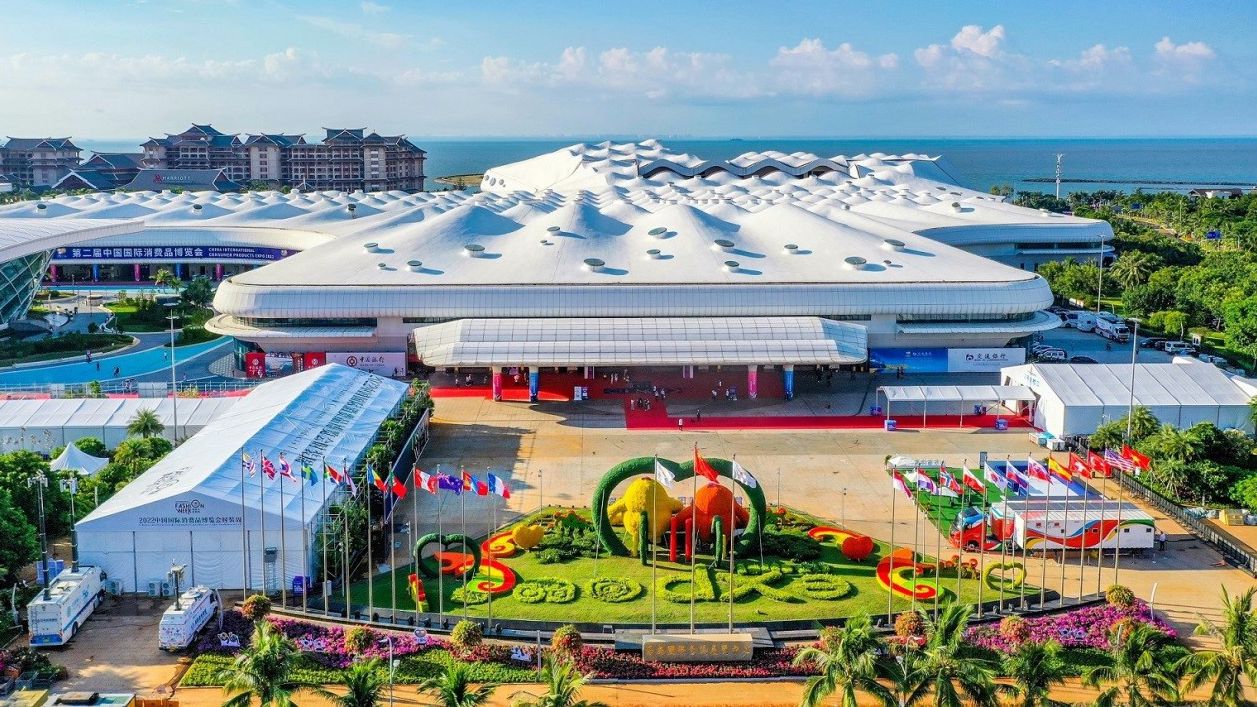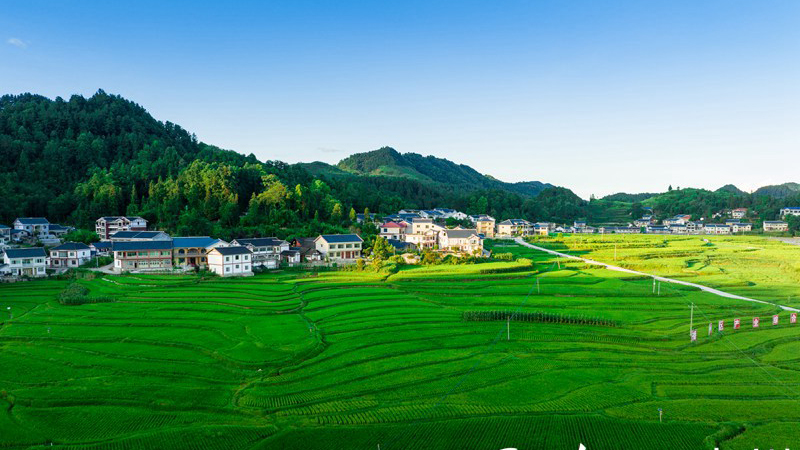Authorities in China's Xinjiang issue 81 RCEP certificates of origin in H1 2022
Relevant authorities in northwest China's Xinjiang Uygur Autonomous Region issued 81 certificates of origin under the Regional Comprehensive Economic Partnership (RCEP) during the first half of 2022 since the RCEP agreement came into force, according to the customs authority of Urumqi, capital of Xinjiang, as reported by Xinjiang Daily on Aug. 1, 2022.

Aerial photo taken on April 11, 2020 shows cargos to be exported in Alataw Pass, northwest China's Xinjiang Uygur Autonomous Region. (Xinhua/Sadat)
The certificates of origin involved about 87.57 million yuan ($12.96 million) worth of goods, which mainly comprised ketchup, cotton products, and yeast, having provided foreign trade enterprises with tariff concessions worth about 4.38 million yuan from importing countries.
"Since the RCEP agreement entered into force, the tariff rate on active carbon exported to Japan has dropped from 2.9 percent to zero, which has indirectly enabled us to export 70 percent more active carbon than last year. The agreement has significantly improved the competitiveness of local products," said Wei Wenjie, manager of a customs brokerage company in Xinjiang.
In order to help foreign trade companies in Xinjiang make good use of preferential policies under the RCEP and other free trade agreements, the customs authority in Urumqi has held special training sessions and policy promotion activities regularly through both online and offline means. At the same time, the customs authority has also actively promoted the application of smart technologies for the approval and issuance of certificates of origin, enabling companies to obtain the certificates in the shortest possible time.
Thanks to the implementation of various measures aimed at ensuring stable growth and improving the quality of foreign trade, companies that export characteristic agricultural products of Xinjiang, such as ketchup, dried fruits and nuts, as well as other traditionally competitive products produced in or sourced from the region, including feed additives, food additives, tires, and iron and steel products, have further consolidated and expanded their overseas markets with the help of the RCEP, according to Guo Yonggang, director of the tariff department under the customs authority of Urumqi.
Photos
Related Stories
- Wondrous Xinjiang: Chinese folk embroiderers learn from, inspire each other
- Cambodian PM proposes standalone secretariat for coordinating implementation of RCEP
- China's Xinjiang sees growth in energy output in H1
- Concerted efforts restore Xinjiang salamander from brink of extinction
- Xinjiang holds intangible cultural heritage exhibition
- RCEP deepens industrial chain cooperation between China, ASEAN
- RCEP, Cambodia-China FTA give Cambodia larger exporting markets: officials
- Teachers' home visits tell growth stories of Xinjiang students
- RCEP facilitates ASEAN products' access to Chinese market
- China's Xinjiang sustains stable industrial growth in H1
Copyright © 2022 People's Daily Online. All Rights Reserved.









